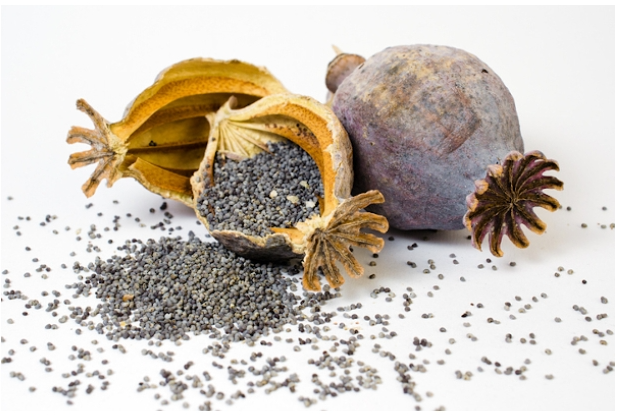Unveiling the Controversy: Dry Poppy Pods and Unwashed Poppy Seeds

The controversy surrounding dry poppy pods and unwashed poppy seeds primarily revolves around their association with the production of opium and its derivatives, particularly heroin. Poppy plants (Papaver somniferum) contain natural alkaloids, including morphine and codeine, which can be harvested from the plant’s latex. When this latex dries on the surface of poppy pods, it can be scraped off and processed to create opium. Additionally, poppy seeds, if not properly washed, can retain trace amounts of these alkaloids, which may lead to concerns about their potential for abuse and the legality of their sale and possession.
Here are some key points regarding this controversy:
- Opium Production: Dry poppy pods are often used as a source of opium. The latex is scraped from the pods, dried, and processed into opium, which can be further refined into heroin. As a result, the sale and possession of dry poppy pods can be regulated or prohibited in many countries due to their potential role in illegal drug production.
- Unwashed Poppy Seeds: Poppy seeds can also contain trace amounts of morphine and codeine. These alkaloids are found in the outer coating of the seeds and can be removed through thorough washing. Unwashed poppy seeds, often labeled as “unwashed” or “natural,” can potentially contain enough alkaloids to trigger a positive drug test for opioids if consumed in large quantities.
- Regulatory Measures: Due to concerns about the potential for abuse and drug production, many countries have implemented regulations on the sale and possession of dry poppy pods and unwashed poppy seeds. These regulations can vary significantly, with some countries allowing their sale for culinary or decorative purposes while others strictly control or ban them.
- Culinary Use: Poppy seeds are commonly used in cooking, particularly in baking and as a topping for bread, bagels, and pastries. However, culinary poppy seeds are typically thoroughly washed to remove any residual alkaloids, making them safe for consumption without the risk of causing a positive drug test.
- Consumer Awareness: Consumers who purchase poppy seeds should be aware of the product’s origin and whether it has been washed or not. Products labeled as “culinary” or “washed” are generally safe for consumption, while “unwashed” or “natural” poppy seeds may carry a higher risk of containing trace amounts of opioids.
- Legal Implications: Individuals should be aware of the legal implications of possessing dry poppy pods or unwashed poppy seeds in their respective countries or regions. In some places, possession of these items may be illegal, while in others, they may be subject to strict regulations.
In summary, the controversy surrounding dry poppy pods and unwashed poppy seeds stems from their association with opium production and the potential presence of trace amounts of opioids in unwashed seeds. Consumers should exercise caution and awareness when purchasing and using poppy seeds, and it’s essential to comply with local laws and regulations regarding these products.




